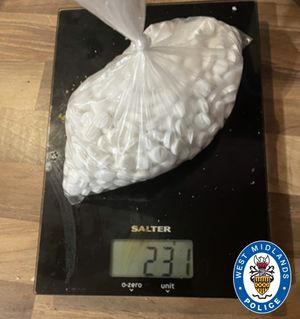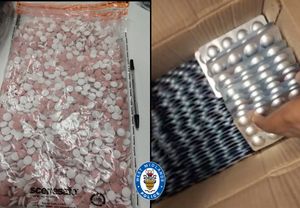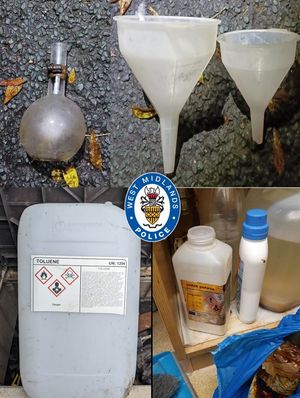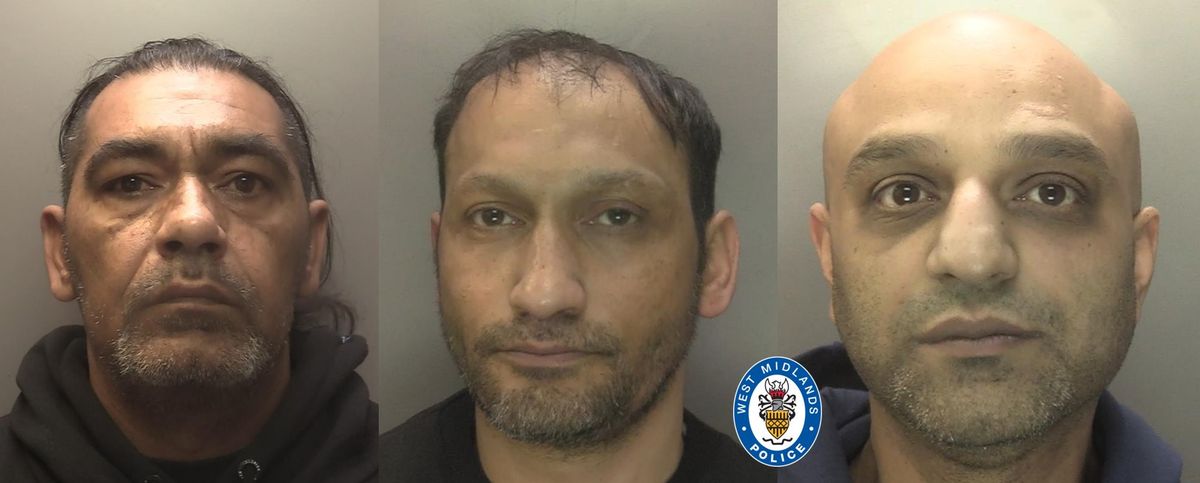Jan Lacko, aged 49, David Sivak, aged 44, and Mohammed Akhtar, aged 45, worked in co-ordination in the criminal enterprise to cook Methylamphetamine, commonly known as ‘crystal meth at illegal laboratories across the West Midlands.
Between 2020 and last year the gang ran multiple makeshift ‘kitchen laboratories’ in residences where they would use chemistry instruments as well as dangerous chemicals to ‘cook’ the drugs. But the activity came to a stop last November when Lacko and Akhtar were both arrested while Sivak was arrested in January.
 Jan Lacko, David Sivak, and Mohammed Akhtar
Jan Lacko, David Sivak, and Mohammed Akhtar
They were arrested after officers from West Midlands Police Birmingham Serious Organised Crime and Exploitation Team (SOCEX) launched an investigation to find where the pills were coming from.
After vehicle stop and checks and raids they found that Akhtar procured the required chemicals, and the bulk delivery of ingredients containing medication from overseas pharmaceutical companies, to Sivak and Lacko.
The gang would refer to the drug as ‘pervitin’ or ‘piko’ – slang terms for the highly addictive drug.
After initially denying the offences all three changed their pleas and admitted running the production of methylamphetamine in May this year.
 The crystal meth tablets
The crystal meth tablets
Lacko, of Grove Lane, Handsworth, also pleaded guilty to supplying methylamphetamine and was jailed for three years and seven months. Sivak, of no fixed address, was jailed for two years and four months.
While Akhtar, of Rotton Park Road, Edgbaston, was handed a 20-month suspended sentence.
Sgt Antony Draper, from the SOCEX team, said: “Crystal meth has grown large exposure in the public through entertainment, and more specifically US television drama, Breaking Bad.
“However, the reality of this highly addictive and dangerous drug, is far from glamorous. It is much dirtier, and comes with serious health implications for users. It is highly addictive and takes a huge toll on the human body.
 The tools
The tools
“The production of the drug is also highly dangerous, creating a substantial risk to all those around.
“With highly dangerous chemicals involved, the risks of serious injury are incredibly high, due to the large amount of toxic waste produced, as well as toxic fumes – all which create a dangerous risk of fires and explosions.”
“This was a complex investigation that required specialist support from CBRN trained officers to assist with the execution of warrants, scientific and forensic support, translation services, shipping data and mobile phone analysis.”
